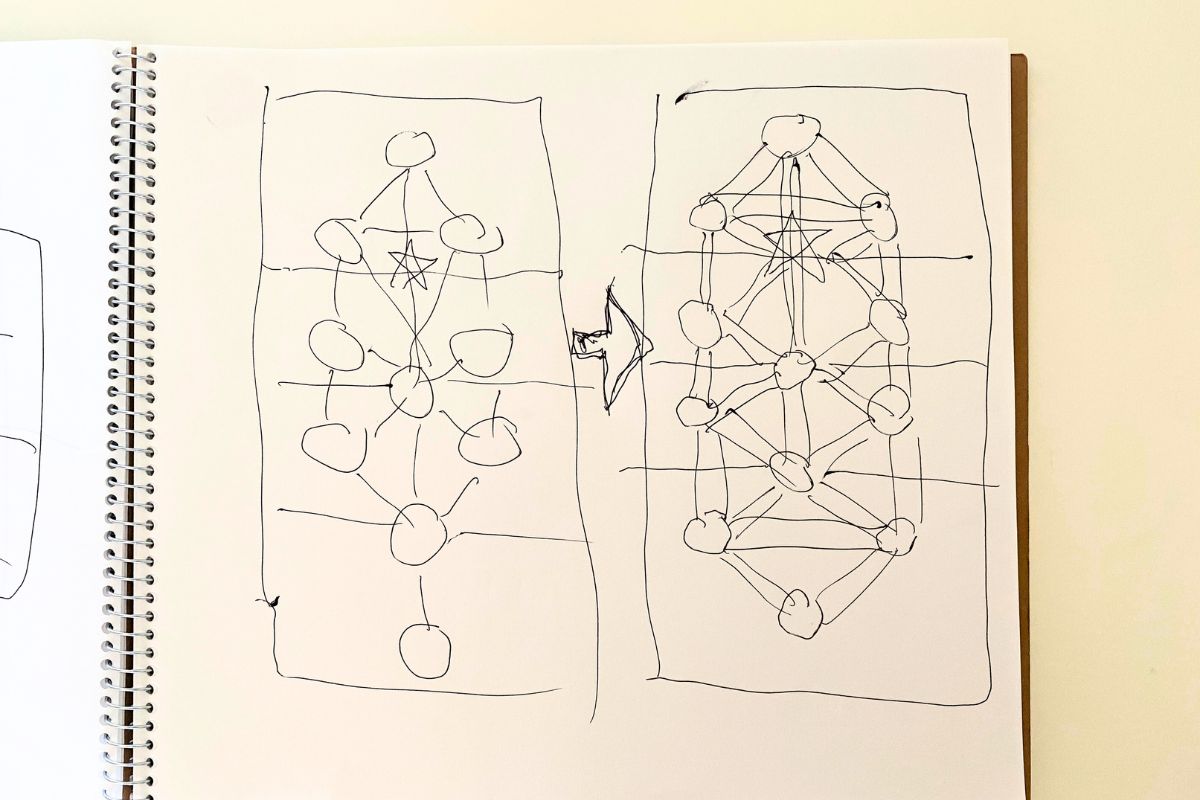We're at an imperative fork in the road of human evolution. The choices we make affect the evolution of the human mind, cognitive psychology and information technology, including new AI.
What I always strikes me as odd when I read books on cognitive bias is the paradox. Authors and researchers criticise and point out various cognitive biases, but at the same time they also express their own cognitive biases in their writings.
I'm not saying they're bad or that cognitive psychology is wrong. I am saying that we as a species have only just scratched the surface of mind technology. And this paradox is not just about authors and researchers, it's deeply embedded in the civilisation, especially in our economic systems.
When it comes to identifying the root causes of superficial symptoms, we tend to think in one way. Authors and researchers tend to say that the law of 'cause and effect' is not correct because we don't fully understand the relationships and systems involved.
(This criticism is so insightful because the law of karma was artificially and deliberately designed and has been operated in the world of linear space-time)
And they tell us that we think and act on the basis of our perception. This means that our mindset and mental models are built from what we get from our five senses. To me, this description is too inductive and sequential. Too inductive means that we tend to perceive only the surface (superficial symptoms) of all things.
Everyone is different and the new era challenges us to upgrade our thought patterns.
Storytelling and its effects have been taught for a long time, and it's been said that people remember specific narratives better than abstract descriptions. But for me, it's easier to absorb and remember the abstract description as a holographic image because it acts as a template or framework for perceiving things.
I'd like to say that there's no such thing as an 'average person' or a 'mediocre individual' in cognition and perception. Authors and researchers still don't know why we can collectively perceive things as seen in the research data that comes from very limited conditions in research and genetic mind programmes.
And it's too risky for us to use political episodes and climate stuff as seen on social media and in academia, because these arenas have not studied things comprehensively, especially behind the scenes.
It's 'caused' by many things and triggered by unknown things, but at least what I think is that our perception and viewpoints have been very limited because of our genetic mind and its settings.
But now it's gradually changing. This change and transition is super important for humanity as a whole.
As I wrote in my research blog, we can evolve ourselves by redesigning and developing a new type of artificial intelligence with associated technologies to understand how we have been manipulated from the invisible arenas. Yes, there's the vast operating system and nested virtualisations for human manipulation and enslavement. Cognitive psychology just scratches the surface.
In my opinion, cognitive psychology should evolve from sequential to object-oriented and beyond linear space-time. It's the same as current AI, which should evolve with the human mind and its structure.
This can be described by the change and shift of Sephiroth, the 'Tree of Life'.

This rough sketch illustrates the significant shift in our genetic mind and its system architecture. We're in the process of expanding our consciousness and mind systems from the left to the right diagram. It can be said that our genetic template of the human mind is collectively evolving from a limited version to a broader one.
This evolution will be impactful for our civilisation, because the impact is the same as adding one more vowel to the Japanese language, 5 vowels to 6 vowels, 9 vowels to 11 vowels, or 10 vowels to 12 vowels. In fact, it has a huge effect on a gestalt collapse on a planetary level.
As I mentioned in the research article, this framework of mind needs to be integrated with the leverage points of systems theory. As the leverage points have increased from 9 to 12, our mental models (each Sephira) are now increasing from 10 to 12. More precisely, from 11 to 13, including Daat, which means knowledge from both deductive and inductive approaches beyond linear space-time in a more object-oriented way with the vast network and nodes.
The very important point is Daat. The old template for the collective human mind, the hidden interface and model, is designed and used by the rulers - the ancient deities such as Anunnaki and Igigi. But the new template actually opens our mind to the True Source in terms of portal and vibes.
The leverage point we need to push for our collective sovereignty and freedom is Tiphereth, known as 'Beauty', and this leverage point is the same as the sixth leverage point, 'The structure of information flows (who does and does not have access to information)'.
To push the powerful leverage point for our broader perspective, wider and more viewpoints, we first need to know the goals and rules of the current systems that maintain the status quo. Once these have been identified and altered, we will be able to push the lever in the right direction, while avoiding the effect of reverse leverage.
With this approach, information technology, including artificial intelligence and cognitive psychology, is simultaneously evolving into something completely different and new.